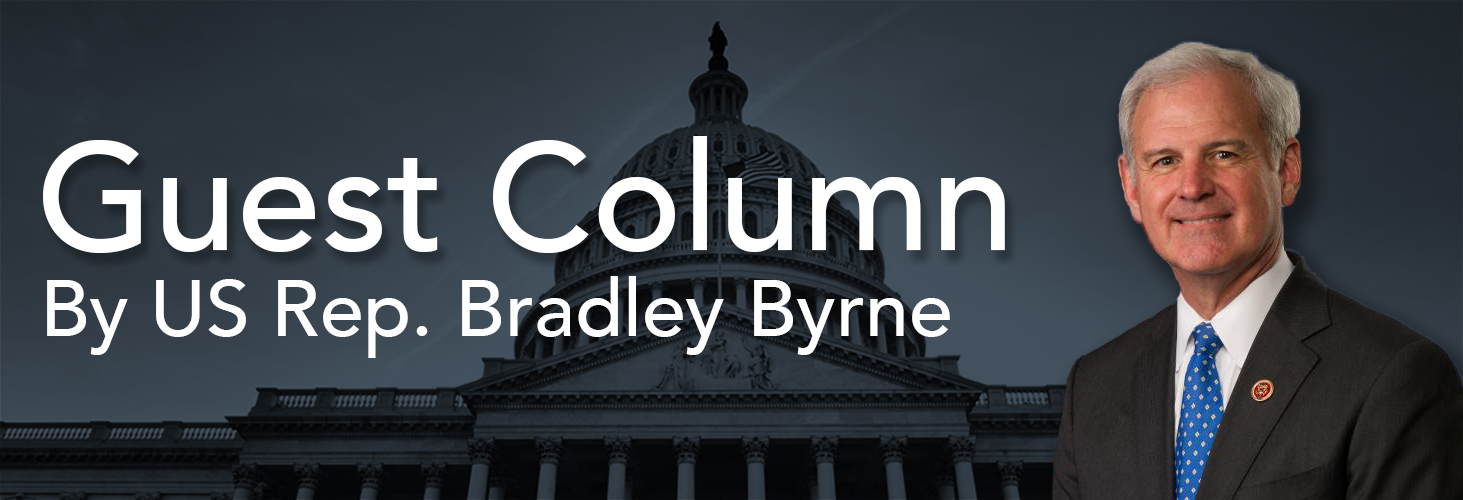By Congressman Bradley Byrne (AL-1)
I’m going to start by telling you something we all know: Washington has a spending problem. The federal government is trillions of dollars in debt and that number continues to rise. If we are going to continue being the greatest nation on the face of the Earth, we must address this culture of overspending.
The process of getting federal spending under control is now underway in Congress as we kick off the budget process. This week, that process officially starts with the President submitting his budget proposal to Congress.
It is very important to remember that the President’s budget proposal is just that: a proposal. In reality, the President knows his budget will be dead on arrival as soon as it gets to the Capitol. In his eight years, President Obama has never proposed a budget that actually balanced. Instead, he has always requested higher taxes and increased spending. That’s simply not the answer.
Once the President’s budget is received, committees in the House and Senate will start holding hearings to discuss the President’s proposals. These oversight hearings are very important because they require officials from the Obama Administration to come before Congress to justify and explain why they should receive funding.
Around the first week of March, the House is expected to pass a budget outline that sets spending priorities for the next ten years. The last two years, I have proudly supported budget proposals that actually balanced without raising taxes. I hope to vote for a similar budget this year.
The key when it comes to balancing the budget is that we must address mandatory spending. As I’ve mentioned before, it is very important to understand the difference between discretionary and mandatory spending.
Discretionary spending is the money that Congress allocates each year for things like national defense, border security, transportation, and education. Mandatory spending is the money that is spent each year regardless of action by Congress. This includes Social Security, Medicare, Medicaid, Obamacare, welfare programs, and interest payments on the national debt.
The real problem with federal spending is that these mandatory spending programs actually make up almost two-thirds of total spending. In other words, the money that Congress does not get to allocate on a yearly basis is the true driver of our national debt. That’s why the budget process is so important. It allows us to suggest long-term reforms to mandatory spending programs that will help get us to a balanced budget.
I want to be clear about one thing: these reforms don’t mean taking away anyone’s Social Security or Medicare benefits. These are programs that Americans have paid into throughout their lives, and these programs should be there for you when you need them most.
The real focus needs to be on means-tested mandatory spending programs like food stamps, public housing, unemployment insurance, and other welfare programs. These programs are clearly not working as far too many Americans remain stuck in poverty.
I hope our budget proposes bold changes to these programs to ensure they are focusing on helping people get out of poverty instead of incentivizing them to stay there. For example, tying welfare to job training programs would be a major step in the right direction. It would help lift people out of poverty, grow the economy, and help reduce federal spending. All of those are worthy causes.
So it is my sincere hope that we use the budget process this year to get serious about cutting spending and balancing the budget because the stakes couldn’t be any higher. This is about finally making Washington live within its means. This is about leaving behind a better, more prosperous America for the next generation.












































